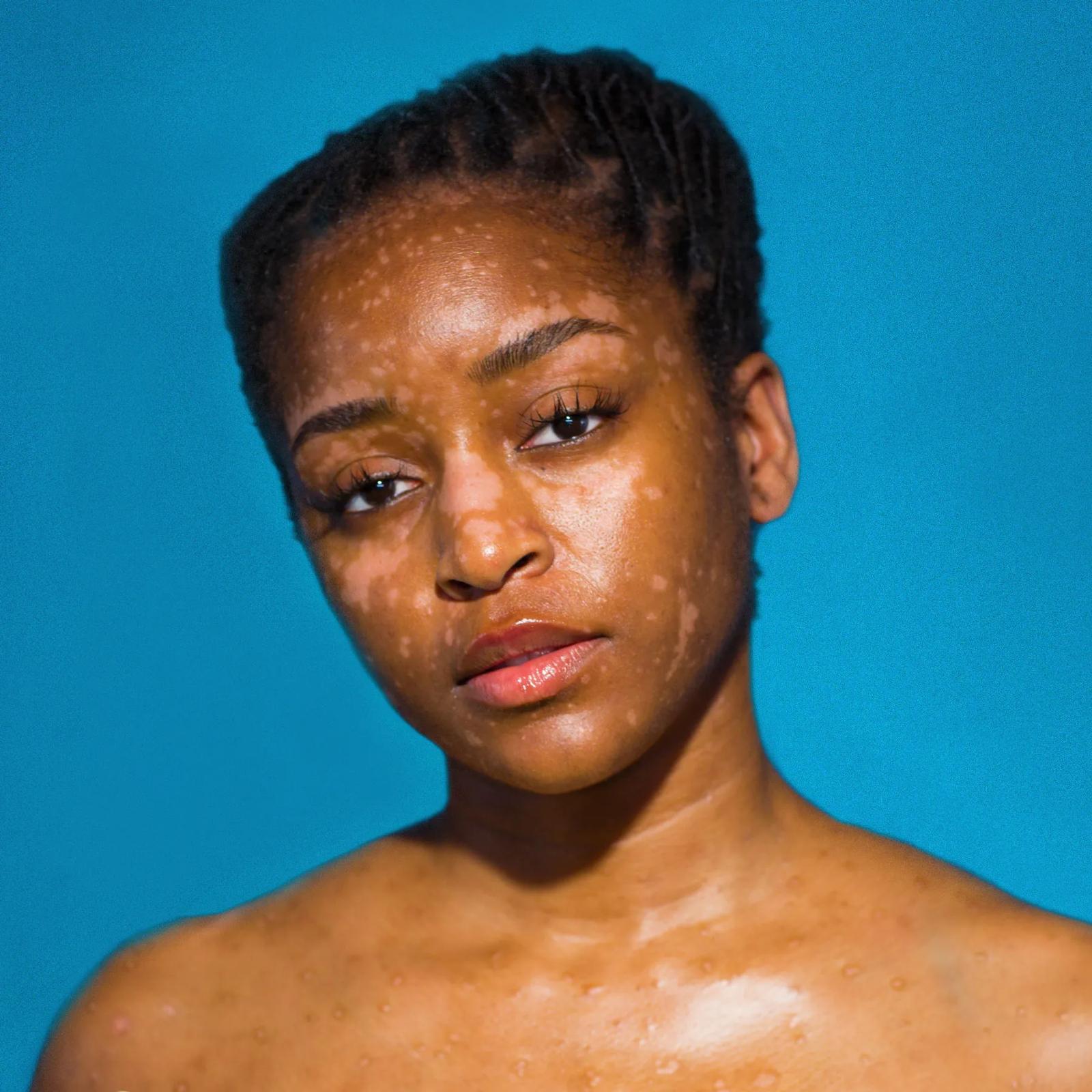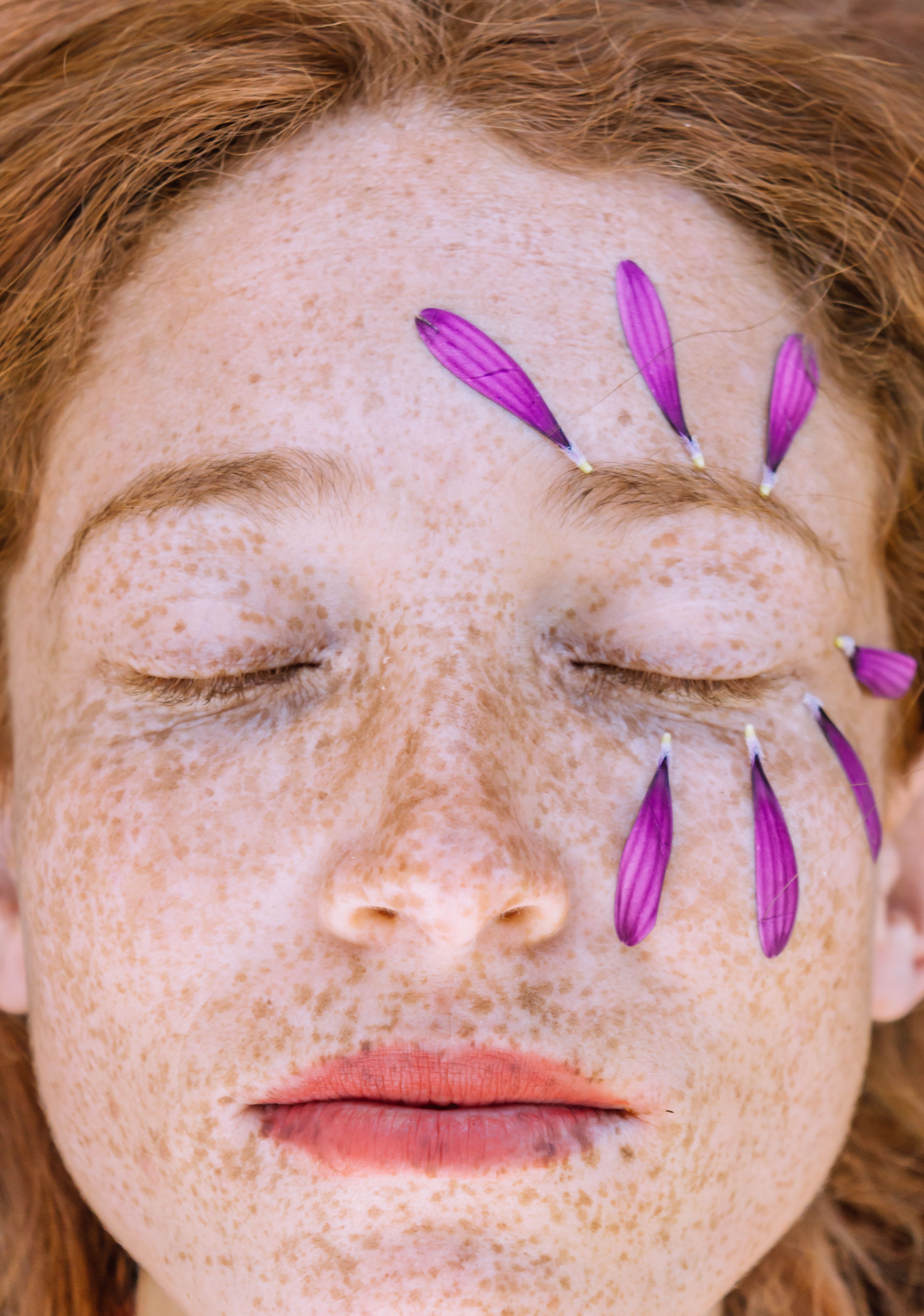
Psoriasis & SPF: The Do's & Don'ts
Psoriasis is a chronic skin condition causing red, scaly, and often itchy patches. Find more about choosing the sunscreen formula that provides maximum protection and soothes the skin.
By SunsolveMD Team | 8 Min. Read
January 5, 2023We've written about psoriasis before. From identifying the symptoms (patchy rash, dry, cracked skin, or cyclic rashes) to sharing ways to reduce the inflammation. These tips have you covered, but when it comes to finding the right sunscreen formula for psoriasis-prone skin, things can turn tricky. To get you started, this article informs about the risks and benefits of UV exposure for psoriasis-prone skin.

Is sun exposure beneficial for psoriasis?
Sun exposure can help reduce the severity of psoriasis symptoms but be aware that too much can lead to sun damage and potentially skin cancer. First and foremost, sun exposure can help reduce inflammation. Inflammation is a common symptom of psoriasis, and it can lead to redness, itching, and pain. Sun exposure helps reduce inflammation by inhibiting pro-inflammatory cytokines, which are molecules that contribute to inflammation.
Sun exposure also increases the production of vitamin D, which has been found to be beneficial for psoriasis. Vitamin D helps reduce inflammatory cytokines, which can help reduce symptoms. In addition to reducing inflammation, sun exposure also helps reduce itchiness. As psoriasis can be extremely itchy, sun exposure may help reduce this symptom by increasing the production of endorphins and serotonin. Both of these chemicals are known to have anti-itch properties, helping to reduce the discomfort associated with psoriasis.
What is light therapy?
If you have moderate to severe psoriasis make sure to speak to a board certified dermatologist. Your doctor will be able to recommend light therapy if your psoriasis hasn't responded well to other treatments. Light treatment therapy, also known as phototherapy, uses ultraviolet (UV) or infrared light to help reduce the symptoms of psoriasis. A variety of light and lasers with different functions been developed for psoriasis including ultraviolet B (UVB), psoralen ultraviolet A (PUVA), pulsed dye laser (PDL), photodynamic therapy (PDT), intense pulsed light (IPL), light-emitting diodes (LED).
The light is applied to the skin in either a targeted or systemic manner. Targeted light therapy is used to treat specific areas of the skin, while systemic light therapy is used to treat the entire body. In either case, the light can help reduce inflammation, slow the growth of skin cells, and improve the overall appearance of skin affected by psoriasis.
It is worth pointing out that light therapy requires multiple sessions to be effective. It starts with three to five light therapy sessions per week over 2–3 months. Your doctor will gradually increase the time the skin is exposed to UV light to ensure the treatment is safe and gives your skin enough time to heal.
Depending on the type of light therapy, it is possible to see improvement in 2–4 weeks, but this is largely dependent on the individual. Each skin is different, and the longevity of benefits may vary. The average remission time is 3–12 months. Regarding the risk of skin cancer, doctors recommend limiting the lifetime usage of psoralen and ultraviolet A (PUVA) phototherapy to 150 sessions.
Side effects of light therapy
It is worth pointing out that a person's sensitivity to UV light will determine the course of light therapy. Despite all the precautions, light treatment can still cause certain side effects.
Here are the possible side effects of light therapy:
- Mild sunburn (not serious and is possible to resolve by adjusting the UV dosage)
- An uncomfortable burning or itching sensation
- Skin redness
- Signs of premature skin aging (dark spots and loose skin)
- Skin discoloration
- An increased risk of skin cancer
Skincare ingredients to avoid
When it comes to psoriasis, the skincare ingredients that you should avoid can make a big difference in the health of your skin. Psoriasis is a chronic skin condition characterized by red, scaly patches on the skin. It can affect any part of the body, including the scalp, face, and nails.
Many lifestyle factors and habits play a role in triggering psoriasis, but everyday treatments are available to help keep the condition under control. When it comes to skincare, certain ingredients should be avoided when you have psoriasis. These ingredients can irritate the skin and make the symptoms of psoriasis worse.
Some of the most common skincare ingredients to avoid with psoriasis include:
Fragrances
Many skin care products contain fragrances, which can be irritating to the skin. Look for products that are labeled "fragrance-free" or "unscented."
Alcohols
Alcohols are a common skin care ingredient, but they can be irritating and dry to the skin, particularly for those with psoriasis. Look for products that are alcohol-free or contain low levels of alcohol.
Sulphates
Often used in shampoo, toothpaste, and soap, can cause irritation in sensitive skin
How to apply sunscreen to skin with psoriasis
For those with active psoriasis, it is best to avoid rubbing lotions or creams into the skin.
Here are some tips for applying sunscreen to skin with psoriasis plaques:
- Choose a sunscreen that is labeled as non-irritating and specifically designed for use on sensitive skin
- Clean the affected area with a gentle cleanser and pat dry
- Apply a thin layer of sunscreen to the affected area and surrounding skin
- Use your fingertips to massage the sunscreen into the skin gently
- Allow the sunscreen to dry before applying additional layers
- Reapply the sunscreen every two hours or after swimming or sweating
- If possible, cover up the affected area with clothing or a hat to provide additional protection from the sun.
Ingredients to look for in the sunscreens
Mineral sunscreens are a great option for this purpose, as they can provide effective protection while being much gentler on the skin than chemical sunscreens. Mineral sunscreens are made with zinc oxide and/or titanium dioxide, which are both natural minerals. These minerals create a physical, rather than chemical, barrier between the sun and the skin. This barrier reflects the sun's rays and prevents them from penetrating and damaging the skin. Mineral sunscreens also contain antioxidants and anti-inflammatory properties, which can help soothe and protect the skin from further damage. For people with psoriasis, mineral sunscreens have several key advantages. Psoriasis-prone skin is sensitive and can be easily irritated by chemical ingredients. Mineral sunscreens contain no harsh chemicals and are, therefore much gentler on the skin.
In addition of offering the highest protection against UV damage, SunsolveMD Calming Mineral Serum SP50 have been developed specifically with psoriasis prone skin in mind.
All SunsolveMD products contain only good-to-skin benefits:
- Non-nano zinc oxide mineral base
- Reef safe
- Non-comedogenic
- Fragrance-free
- Paraben free
- Palm oil free
SunsolveMD Calming Mineral Serum SP50 is formulated with SunsolveMD's anti-redness complex to provide a nourishing, rich and mineral SPF formula that visibly corrects the look of skin redness and offers a calming, restorative effect to the skin.
SunsolveMD CeraPol-3 Technology TM: Patented Targeted anti-inflammation technology designed to soothe the skin's barrier at the lipid level.
SunsolveMD SolveDNAReverseTM: Reverses DNA photo sun damage powered by a complex repair enzyme.
SunsolveMD EnviroSolveTM: Protects the skin from 97% of UV radiation and HEV (blue) light while reducing pollution-induced free radicals.
Tanning beds and psoriasis
Tanning beds and psoriasis is a hot topic of discussion right now, and you are probably interested in learning more about how the two are related. While there is no known cure for psoriasis, some treatments may help reduce the number of flare-ups and improve overall skin health. One of the treatments that has been gaining traction in recent years is using tanning beds to manage psoriasis. Tanning beds provide UV radiation, which can help reduce the presence of the red, scaly patches that are symptomatic of psoriasis. The UV radiation in a tanning bed helps slow down skin cell growth, which can help reduce the number of psoriasis flare-ups. However, it is important to note that tanning beds should only be used as a complementary therapy to other treatments prescribed by a doctor, as they are not a stand-alone solution to treating psoriasis. When using tanning beds to treat psoriasis, it is important to take certain safety precautions to advert the risk of skin cancer and other skin conditions.
Self tanner and Psoriasis
Self tanners can be a great way to manage the symptoms of psoriasis, a chronic skin condition that affects millions of people. Psoriasis is an autoimmune condition in which the body's immune system mistakenly attacks skin cells, causing them to reproduce too quickly, resulting in scaly, red patches on the skin.
Self tanners may be used to help reduce the appearance of these patches by giving the skin a natural-looking tan. Make sure to invest in quality tanners that are specifically designed for use on the face and body. This is because some self-tanners contain ingredients that can irritate sensitive skin and exacerbate psoriasis symptoms. Look for self tanners that are hypoallergenic and non-comedogenic, meaning they won't clog pores or cause breakouts. It's also important to select a product that is fragrance-free, as fragrances can be irritating to the skin. When applying self tanners, it's essential to use a clean applicator and to apply the product evenly. Start by washing and exfoliating the skin to remove any excess oils and dead skin cells.
Additional considerations
Be aware that some medications (like acitretin or methotrexate) can potentially increase sun sensitivity. Also, preventing sunburn as it not only damages the skin but releases inflammatory cytokines - messengers that make our skin irritated and itchy. Like any injury to the skin, it may flare psoriasis. Take measures to avoid it by applying broad-spectrum sunscreen whenever out in the sun.
References
What to know about light therapy for psoriasis. Danielle Dresden on November 6, 2018, https://www.medicalnewstoday.com/articles/323593
Mehta D, Lim HW. Ultraviolet B phototherapy for psoriasis: review of practical guidelines. Am J ClinDermatol. 2016, https://pubmed.ncbi.nlm.nih.gov/26872953/
Batycka-Baran A, Besgen P, Wolf R, Szepietowski JC, Prinz JC. The effect of phototherapy on systemic inflammatory process in patients with plaque psoriasis. J Photo chem Photo biol B. 2016, https://pubmed.ncbi.nlm.nih.gov/27314537/
Parisi R, Iskandar IYK, Kontopantelis E, et al.. National, regional, and worldwide epidemiology of psoriasis: Systematic analysis and modelling study. BMJ 2020; https://pubmed.ncbi.nlm.nih.gov/32467098/
